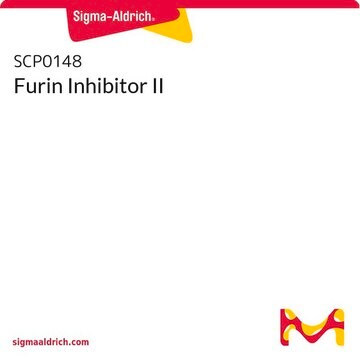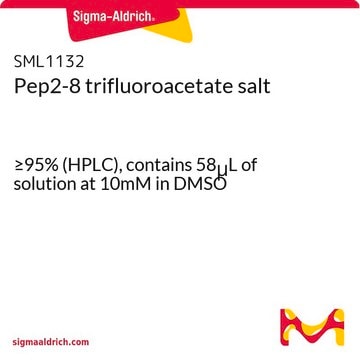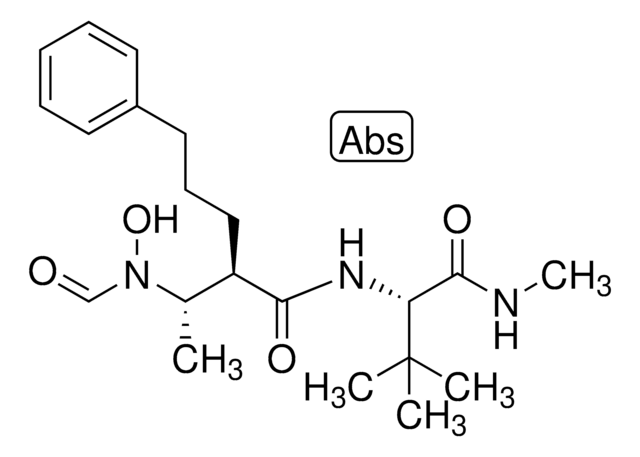344930
Furin Inhibitor I
≥90% (HPLC), solid, furin inhibitor, Calbiochem®
Synonyme(s) :
Furin Inhibitor I, Decanoyl-RVKR-CMK
About This Item
Produits recommandés
product name
Furin Inhibitor I, Furin Inhibitor I, is a peptidyl chloromethylketone that binds to the catalytic site of furin and blocks its activity.
Niveau de qualité
Pureté
≥90% (HPLC)
Forme
solid
Fabricant/nom de marque
Calbiochem®
Conditions de stockage
OK to freeze
desiccated
Couleur
off-white
Solubilité
methanol: 1 mg/mL
DMSO: soluble
Conditions d'expédition
ambient
Température de stockage
−20°C
Description générale
Actions biochimiques/physiologiques
viral glycoproteins
Avertissement
Séquence
Forme physique
Reconstitution
Autres remarques
Wang, X., and Pei, D. 2001. J. Biol. Chem.276, 35953.
Capell, A., et al. 2000. J. Biol. Chem. 275, 30849.
Denault, J.B., et al. 1995. FEBS Lett. 362, 276.
Denault, J.B., et al. 1995. J. Cardiovasc. Pharmacol.26, S47.
Garten, W., et al. 1994. Biochimie 76, 217.
Hallenberger, S., et al. 1992. Nature 360, 358.
Stieneke-Gröber, A., et al. 1992. EMBO J. 11, 2407.
Informations légales
Code de la classe de stockage
11 - Combustible Solids
Classe de danger pour l'eau (WGK)
WGK 3
Point d'éclair (°F)
Not applicable
Point d'éclair (°C)
Not applicable
Certificats d'analyse (COA)
Recherchez un Certificats d'analyse (COA) en saisissant le numéro de lot du produit. Les numéros de lot figurent sur l'étiquette du produit après les mots "Lot" ou "Batch".
Déjà en possession de ce produit ?
Retrouvez la documentation relative aux produits que vous avez récemment achetés dans la Bibliothèque de documents.
Les clients ont également consulté
Notre équipe de scientifiques dispose d'une expérience dans tous les secteurs de la recherche, notamment en sciences de la vie, science des matériaux, synthèse chimique, chromatographie, analyse et dans de nombreux autres domaines..
Contacter notre Service technique












